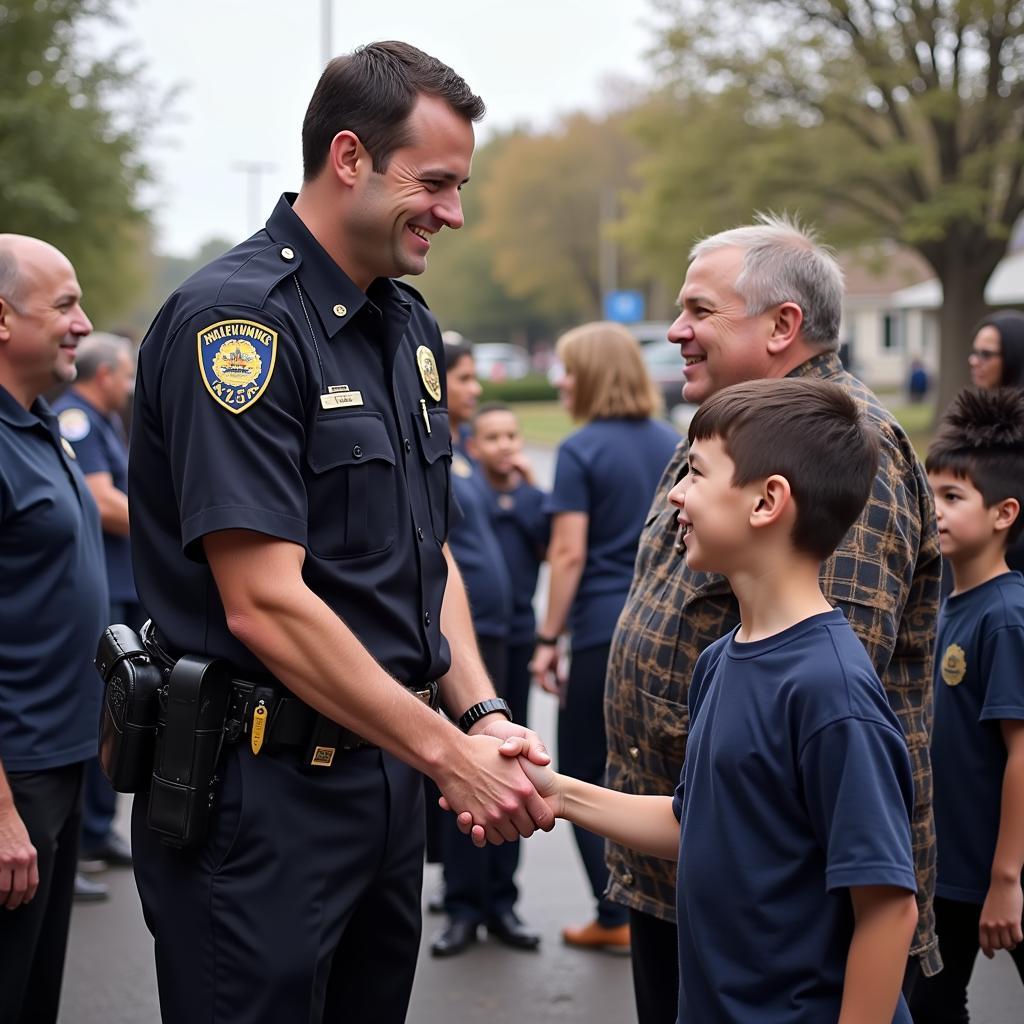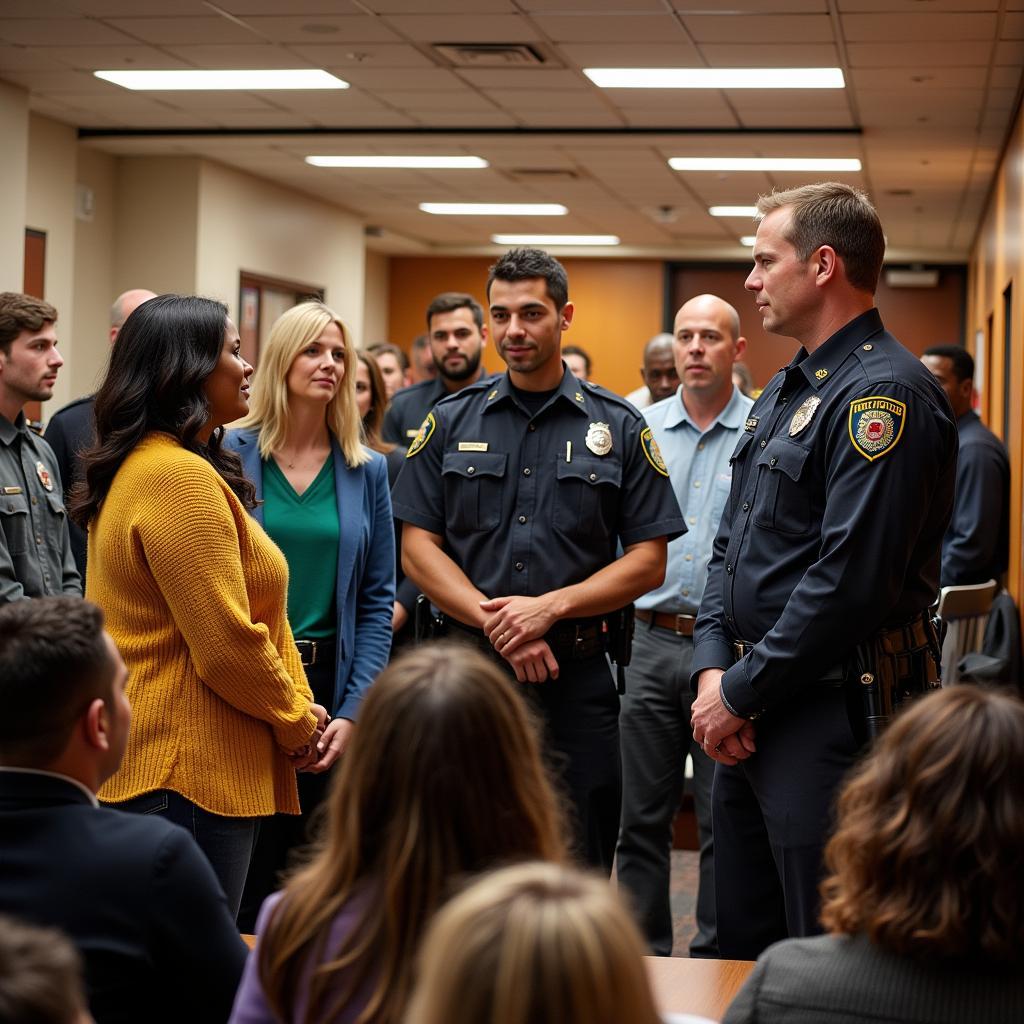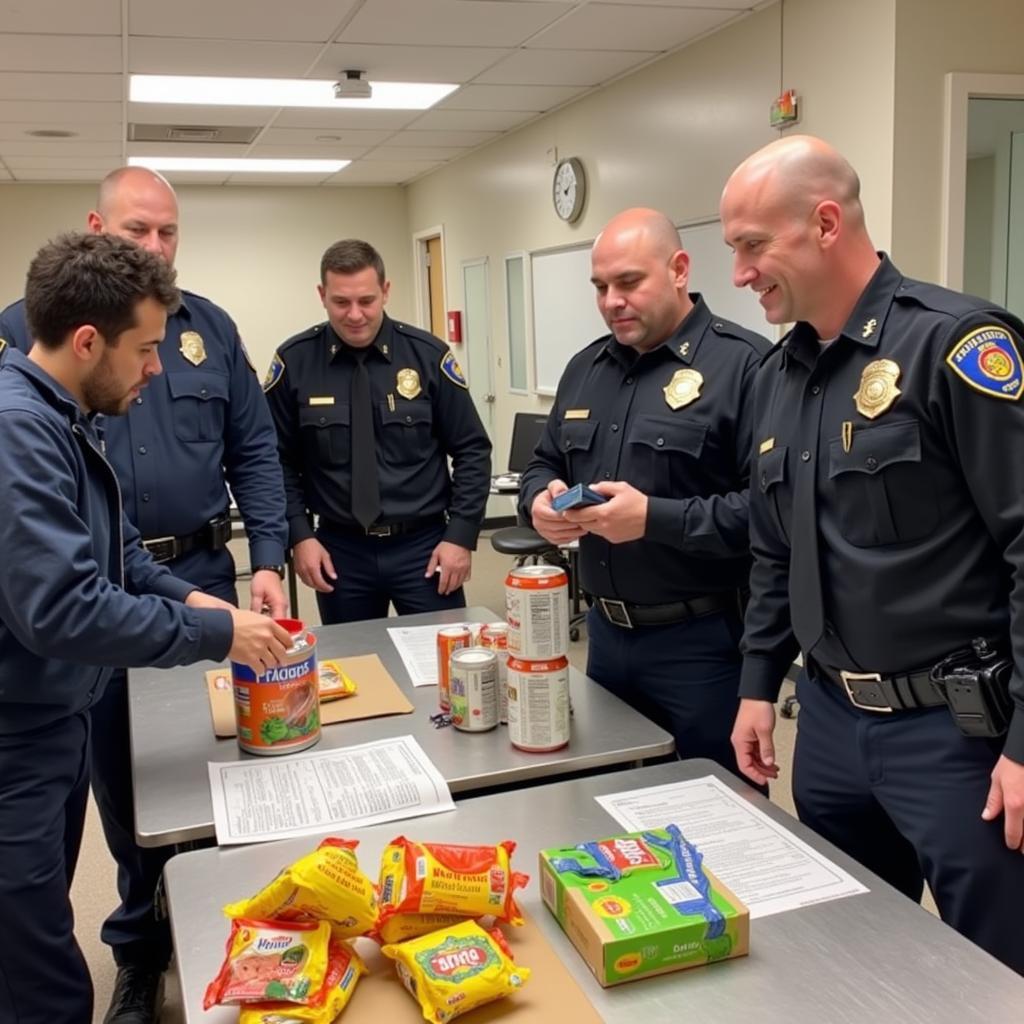The term “Police Society” might seem straightforward at first, but it speaks to a dynamic and multifaceted relationship at the heart of every community. It’s about the delicate balance between maintaining order and protecting individual rights, a balance often navigated within the complexities of human behavior and societal pressures.
 Police officer engaging in positive community interaction
Police officer engaging in positive community interaction
The Core Functions of a Police Force
Police forces exist to serve and protect, upholding the law while ensuring a safe environment for all citizens. This involves a wide range of responsibilities, including:
- Law Enforcement: This encompasses the investigation of crimes, apprehension of suspects, and prevention of criminal activity.
- Order Maintenance: Police officers often act as mediators in disputes, manage crowds, and respond to public disturbances, ensuring peace and order within the community.
- Service Provision: Beyond law enforcement, police often provide a variety of essential services, including assisting individuals in need, providing directions, and responding to emergencies.
The Evolving Relationship Between Police and Society
The relationship between police and society is not static; it evolves alongside societal values, cultural shifts, and technological advancements.
 A public forum hosting a dialogue between the police and the community
A public forum hosting a dialogue between the police and the community
Increased scrutiny of law enforcement practices, coupled with growing awareness of social injustices, has led to calls for greater transparency, accountability, and reform. Communities are demanding equitable treatment, unbiased policing, and meaningful engagement from those sworn to protect them.
Building Trust and Bridging the Divide
A healthy “police society” thrives on trust and mutual respect. This necessitates a multi-pronged approach:
- Community Policing: Strategies that prioritize building relationships between police officers and the communities they serve, through regular interactions, dialogue, and collaborative problem-solving.
- Transparency and Accountability: Implementing mechanisms that ensure transparency in police operations, holding officers accountable for misconduct, and providing avenues for citizen feedback and complaints.
- Training and Education: Equipping police officers with the skills and knowledge to navigate diverse communities with sensitivity, de-escalate tense situations, and address implicit bias.
The Role of Technology in Shaping the Future
Technology is playing an increasingly significant role in shaping the future of policing. Body-worn cameras, predictive policing software, and social media monitoring tools offer new avenues for transparency, efficiency, and crime prevention.
However, these technologies also raise ethical concerns regarding privacy, surveillance, and potential bias. Striking a balance between leveraging technology for good while safeguarding individual rights is paramount.
 Police officers participating in a community outreach program
Police officers participating in a community outreach program
Towards a More Just and Equitable Future
The journey towards a more just and equitable “police society” requires ongoing dialogue, collaboration, and a shared commitment to progress. By fostering understanding, empathy, and respect, we can bridge divides, build stronger communities, and create a safer world for all.
FAQs
What are some ways to improve police-community relations?
Building trust through community policing initiatives, promoting transparency and accountability, and providing officers with comprehensive training on cultural sensitivity and de-escalation techniques are crucial steps in improving police-community relations.
How can technology be used ethically in policing?
Implementing strict guidelines for data collection and use, ensuring transparency in algorithmic decision-making, and providing adequate oversight and accountability mechanisms are essential for ethical technology use in policing.
What is the role of citizens in shaping police practices?
Citizens play a vital role in shaping police practices by engaging in constructive dialogue with law enforcement, advocating for policy changes, and holding their elected officials accountable for ensuring just and equitable policing.
Is vigilantism ever justified?
While understandable in certain situations, vigilantism is generally not condoned. It undermines the rule of law and can lead to further chaos and injustice. Learn more about the complexities of vigilantism and its impact on society here.
Are there organizations dedicated to improving police-community relations?
Yes, many organizations work tirelessly to bridge the gap between law enforcement and the communities they serve. One such example is the Emerald Society of the Boston Police, a group committed to fostering positive relationships and cultural understanding. Discover more about their initiatives here.
Where can I find resources for understanding the complexities of the criminal justice system?
Numerous organizations and websites offer valuable resources and insights into the intricacies of the criminal justice system.
How can I get involved in my community to promote positive change in the realm of policing and justice?
There are countless ways to make a difference. Contact your local government representatives, participate in community forums, and support organizations dedicated to criminal justice reform. Your voice and actions can contribute to meaningful change.
For support or assistance, please contact us:
Phone: 02043854663
Email: [email protected]
Address: Khu 34, Bắc Giang, 260000, Việt Nam.
Our dedicated team is available 24/7 to assist you.